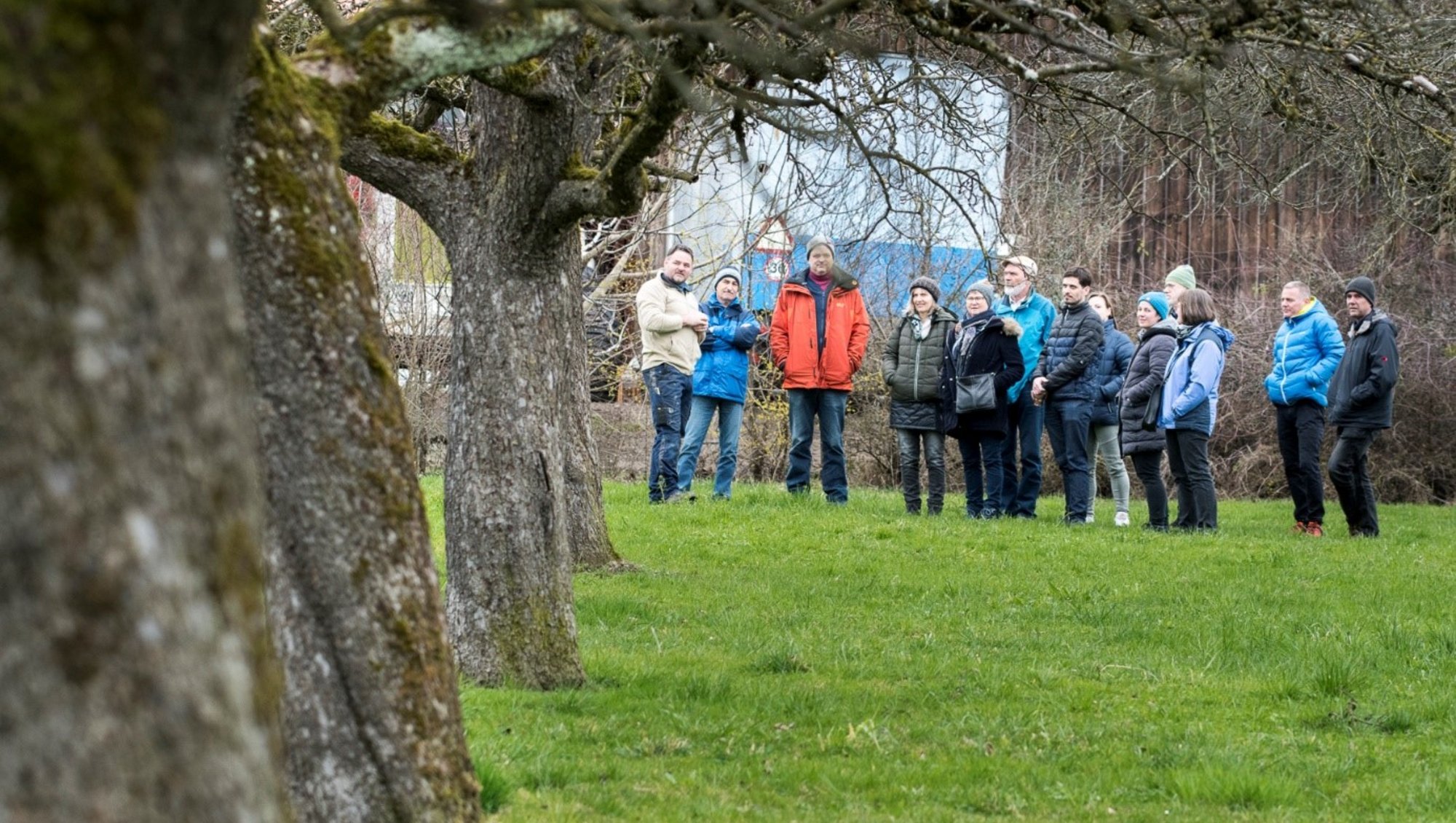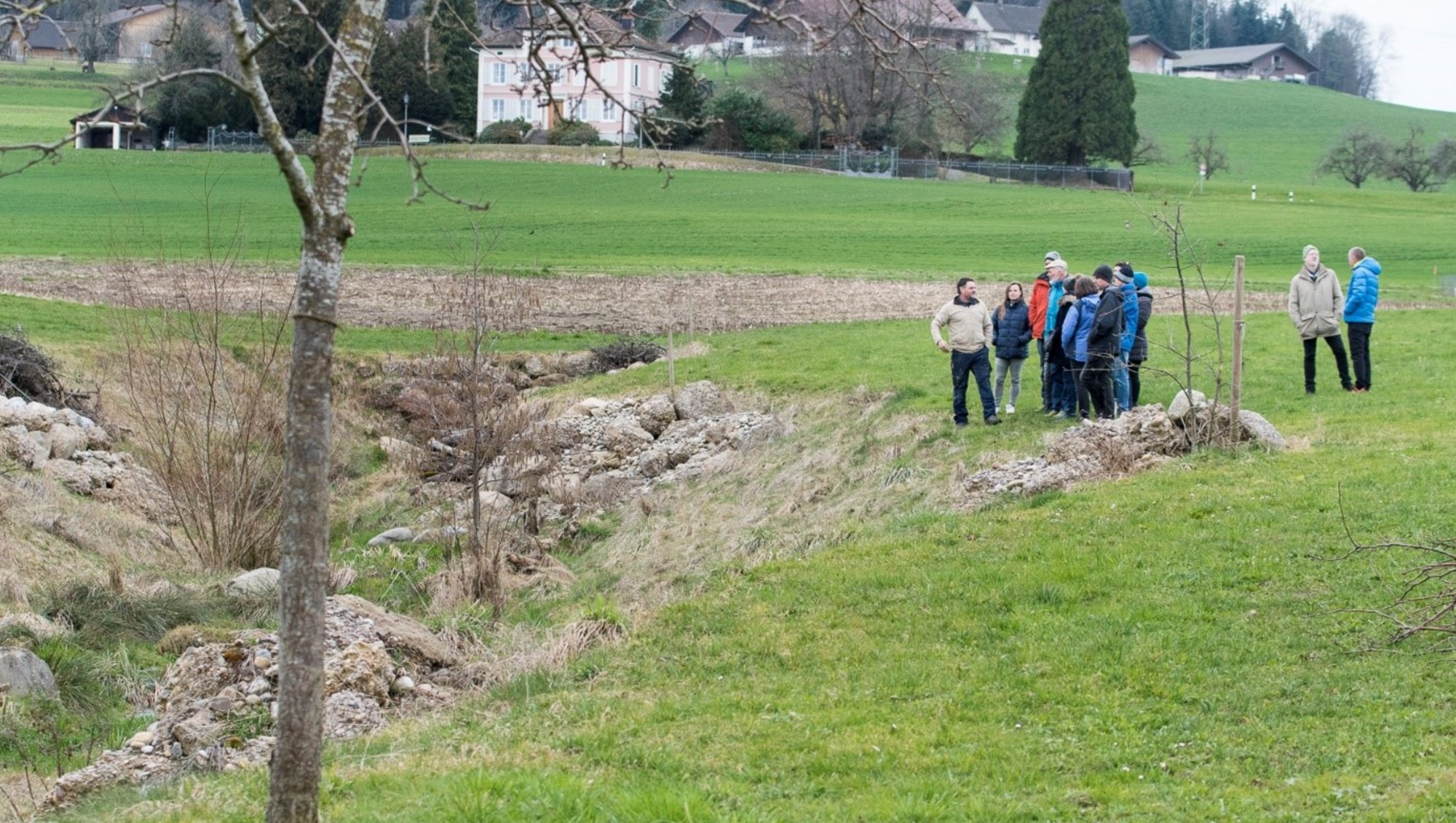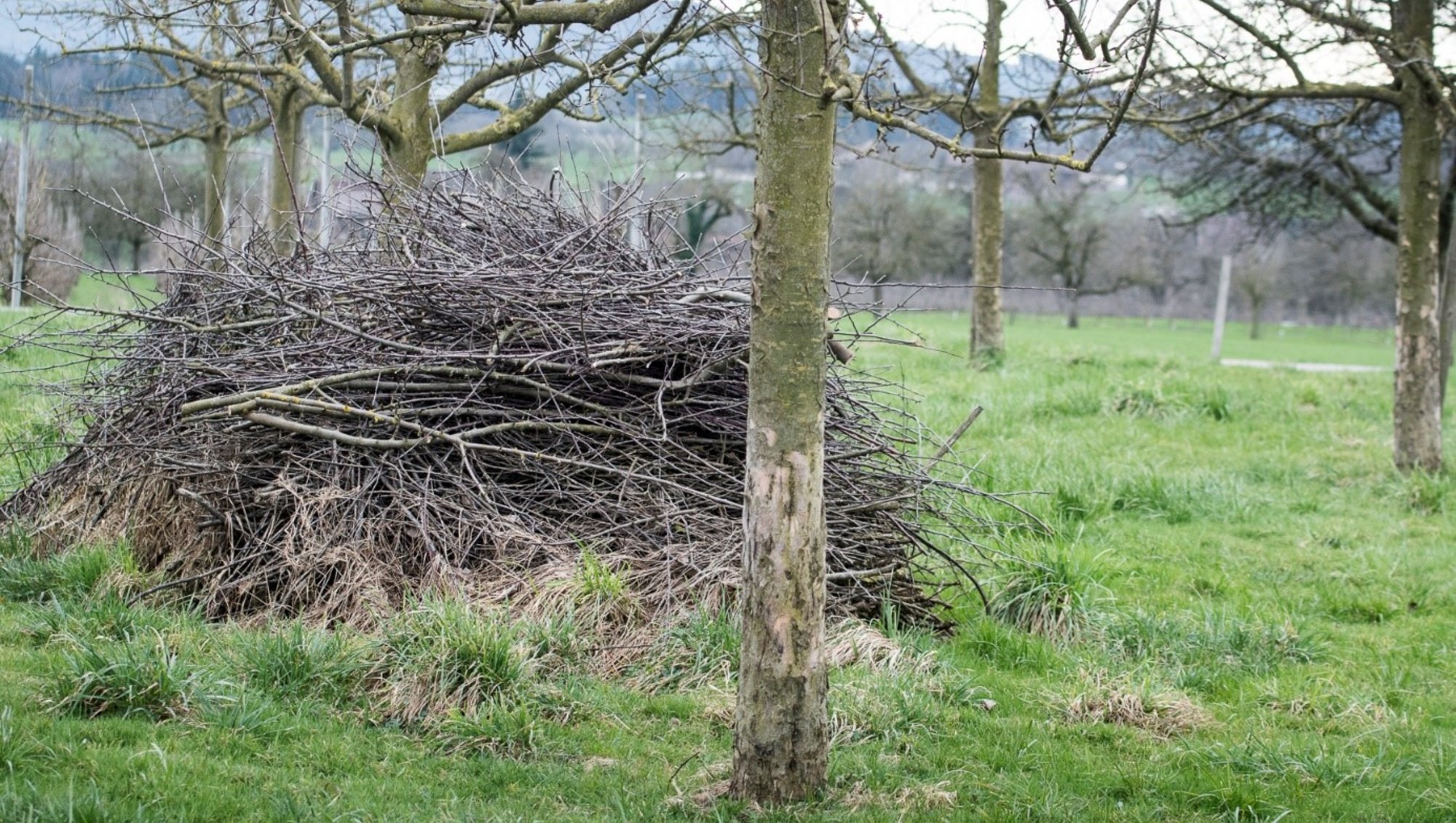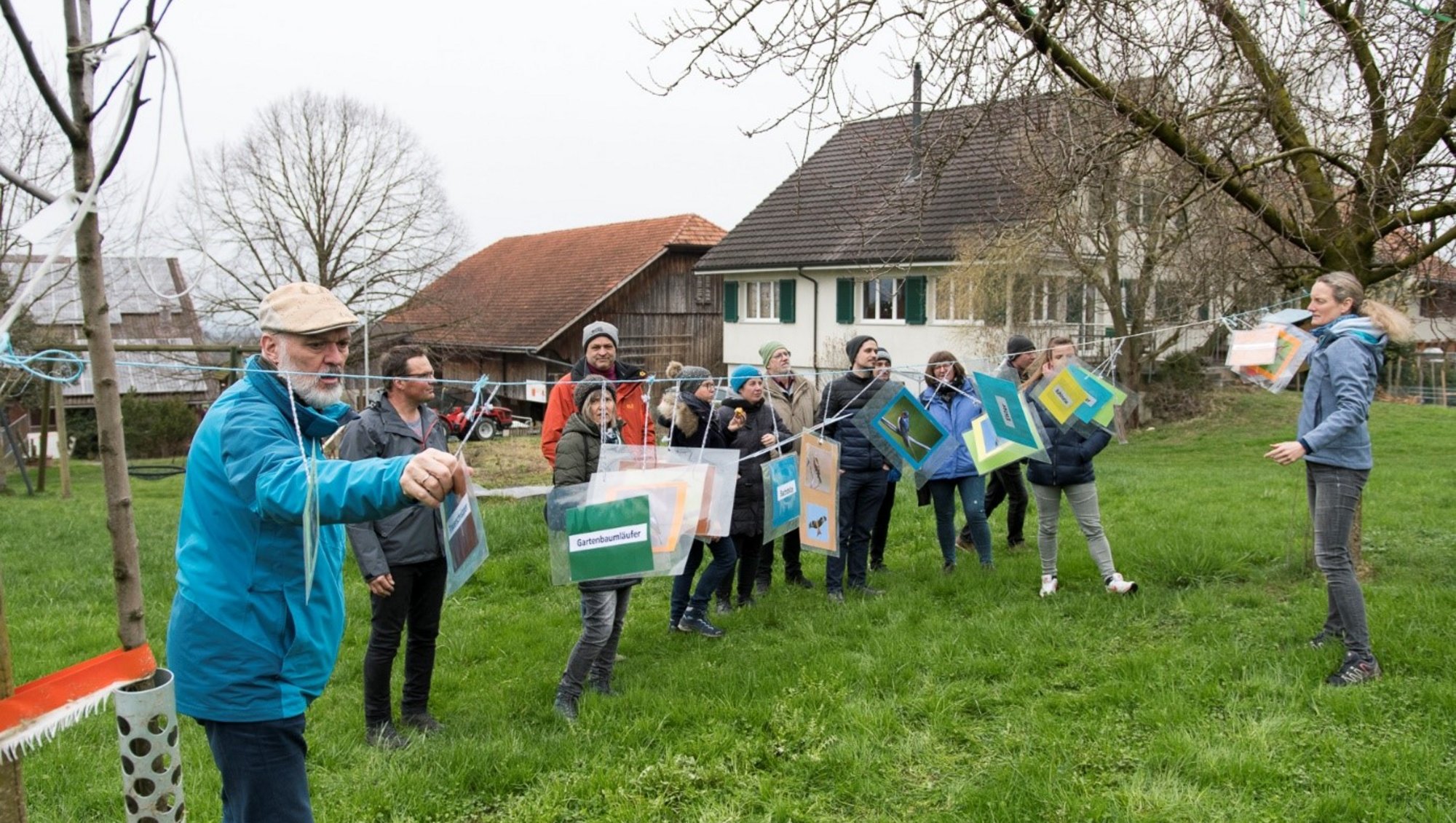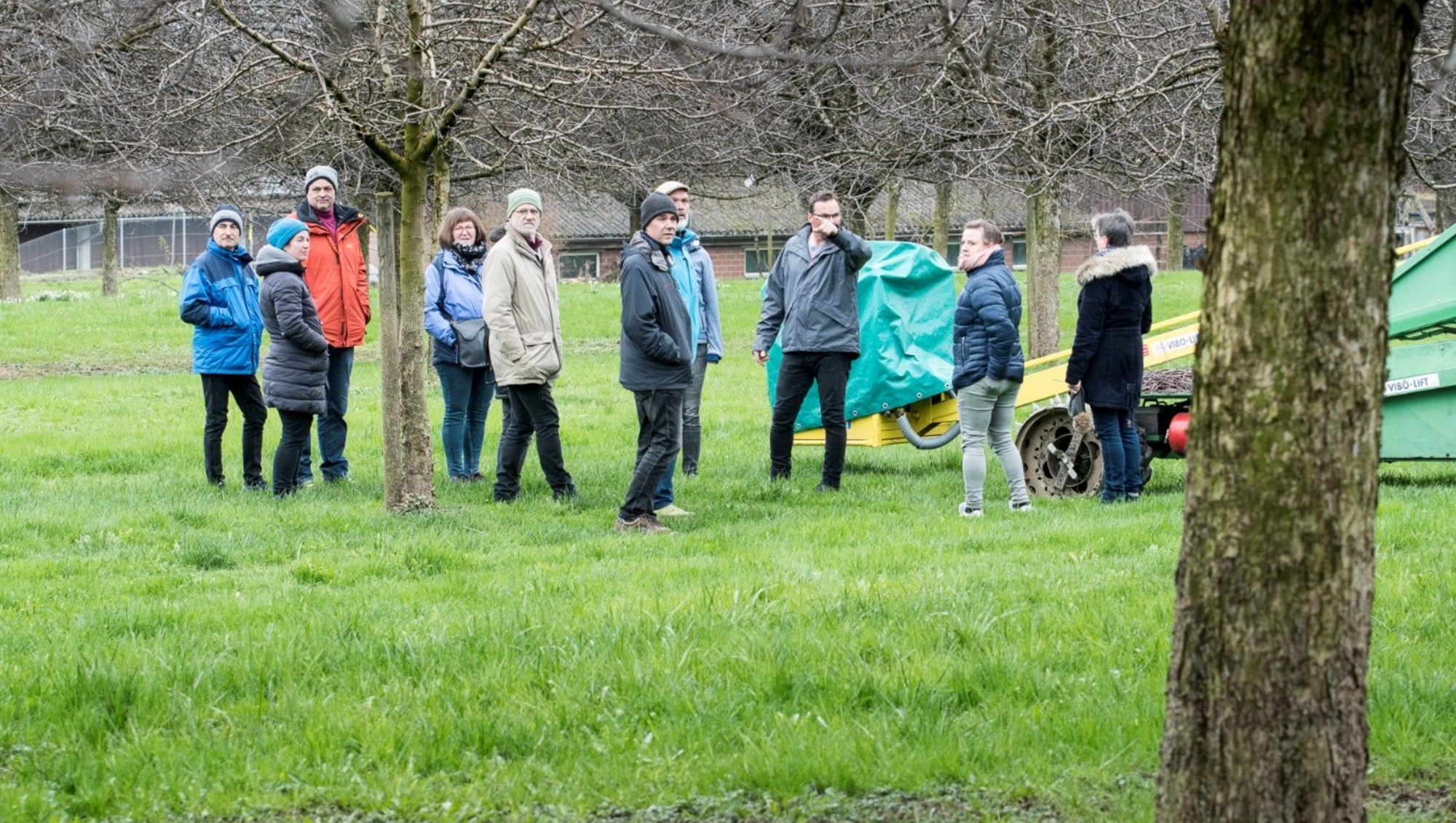Same same but different: Austrian Farmer Network exchange to Switzerland
Farmers from three Austrian organic Demeter Apple Hen farms traveled to Switzerland together with the BOKU MIXED team to exchange ideas with the Hochstamm Suisse network. The trip was jointly organized by BOKU Vienna, Hochstamm Suisse and FiBL Switzerland to facilitate an exchange between MIXED networks.

The Austrian MIXED Apple Hen farmers cultivate espalier apple trees according to Demeter guidelines. Organic laying hens are kept within the apple orchards, and in the summer months a good part of their diet is covered by the variety of green fodder and insects in the orchard. The Swiss Hochstamm-Suisse farmers, on the other hand, produce on tall trees, as the name suggests.
Apple is apple, some might say - but the Austrian MIXED network is aware that Swiss high-stem farmers produce in a completely different way and are therefore faced with different challenges.
Both espalier and standard fruit growers are tied to their farms for most of the year, with a short, quieter window of opportunity during the transition period from winter to early spring. When the majority of the trees have already been pruned and the buds are slowly, hopefully not too quickly, beginning to sprout, the apple farmers can now hand over the business to their growing successors for a few days and embark on one of their rare journeys.
The Apple Hen farmers were therefore delighted and excited: for some, the network exchange was their first trip on an overnight train and their first visit to Switzerland. After a short night on the night train, the Apple Hen farmers and the BOKU MIXED team members met in the windy Swiss town of Buchs and set off together on the onward journey by Swiss train to St. Gallen. Thankfully, the Swiss MIXED network of Hochstamm Suisse and FiBL Switzerland takes over the travel organization from here.
Biodiversity, soil health and innovations of two Demeter Hochstamm Suisse farms
At the first farm we visited, the Austrian Apple Hen farmers immediately felt very much at home. It is also a Demeter farm, Schönholzer in Schönholzerswilen, which, like the Austrian farms, has several branches of production and exemplifies the principle of mixed farming in the middle of a small village. Although the farm is restricted by the local conditions, there is room on the farm for high-stem apples, field crops as well as dairy cows and a few hens. The products are marketed in the farm store, among other places. Interestingly, the apple and its production method is not the main point of discussion - the focus is on the Schönholzer farm's efforts to promote biodiversity as sustainably and extensively as possible. The farm manager has worked together with the municipality to renaturalize a stream in a particularly impressive way. The required area was made available to the municipality by the farm on the condition that a habitat is created for numerous animals. One of the standard plants is located directly next to the newly created biotope and is already benefiting from this measure.

The innovative power of the second Demeter farm is impressive. It seems that every type of livestock has been part of Hans Oppikhofer's MIXED farm for some time. The farm is also clearly mixed farming, although the production branches probably change every few years. The farm manager reacts with incredible openness to changes on his farm and always finds solutions to emerging challenges. As a permanent crop, the standard trees bring stability and peace to the farm. As the planting of standard apple trees requires a long-term perspective, Hans Oppikhofer's love of experimentation is satisfied above all by different types of pruning and he is very keen to pass on his experience based on the numerous apple trees he has already pruned.
This Demeter farm in Steinbrunn also focuses on promoting biodiversity and preserving soil fertility. Drinking troughs for wild bees and other beneficial insects, high piles of stones and the storage of prunings at the edge of the apple orchards in large piles to create a habitat for wild bees and other beneficial insects are just a few examples. In addition, numerous shelters are created for the mice's predators - the name of the farm "Mouse Field" is truly no coincidence. Not even 20-year-old standard apple trees are safe from the voracious little rodents, to the astonishment of the Austrian Apple Hen farmers, who are no strangers to the mouse plague. Here, too, it is impressive how many ideas Hans Oppikhofer has to overcome the challenges.
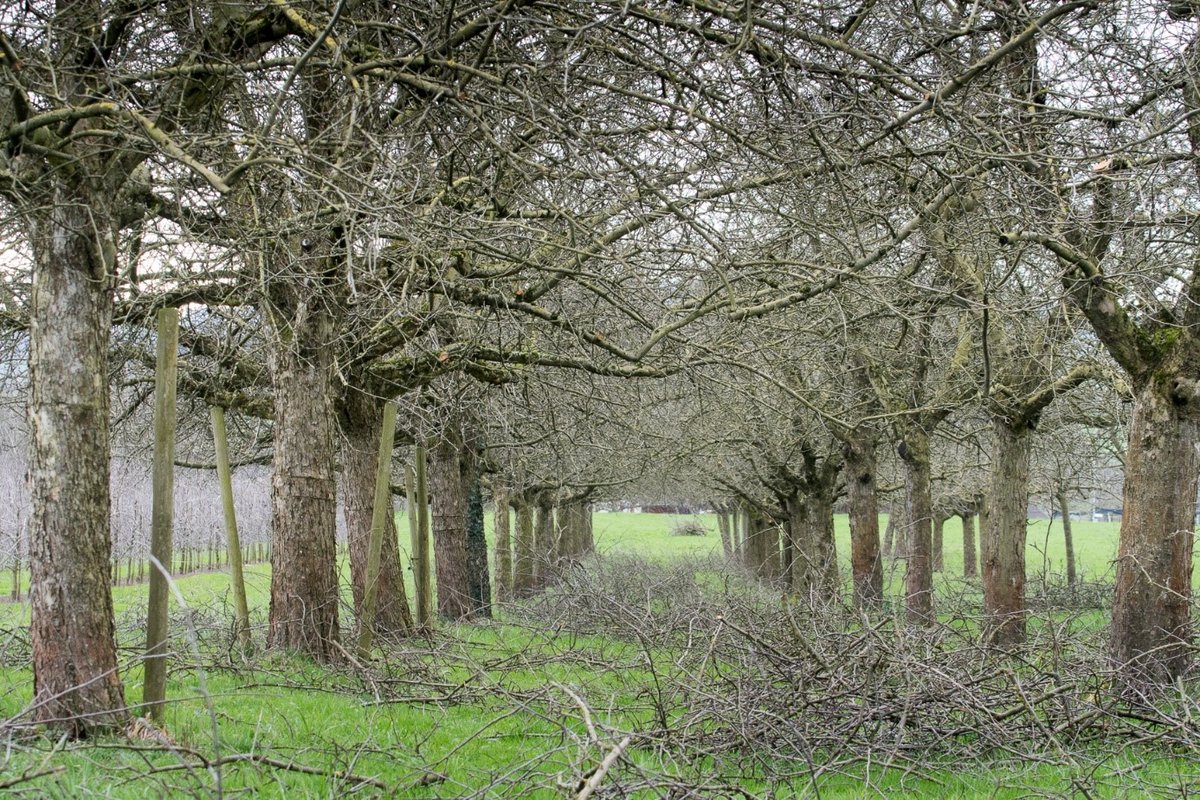
Rarely have we experienced our talkative apple farmers as quiet as on the evening of this eventful day. The day ends with the comment "Our heads are full of impressions, we have to go to sleep".
Fruit production and cidery
With renewed energy and receptiveness, we start the second day of the network exchange together, which begins at Markus Müller's agroforestry farm in Muolen. This farm also has several branches of production that are managed conventionally. The main focus is certainly apple production on standard trees, but an important aspect for the farm manager is also the dairy cows, whose manure is regularly applied to the standard crops. The grassland under the trees is in turn used to feed the dairy cattle.
The Müller farm is an important supplier for the Kobelt cidery in Marbach, which greatly appreciates the reliability and quality of its apples. It was therefore an obvious choice to follow the path of the Müller apples and visit the cidery on the afternoon of the second day.
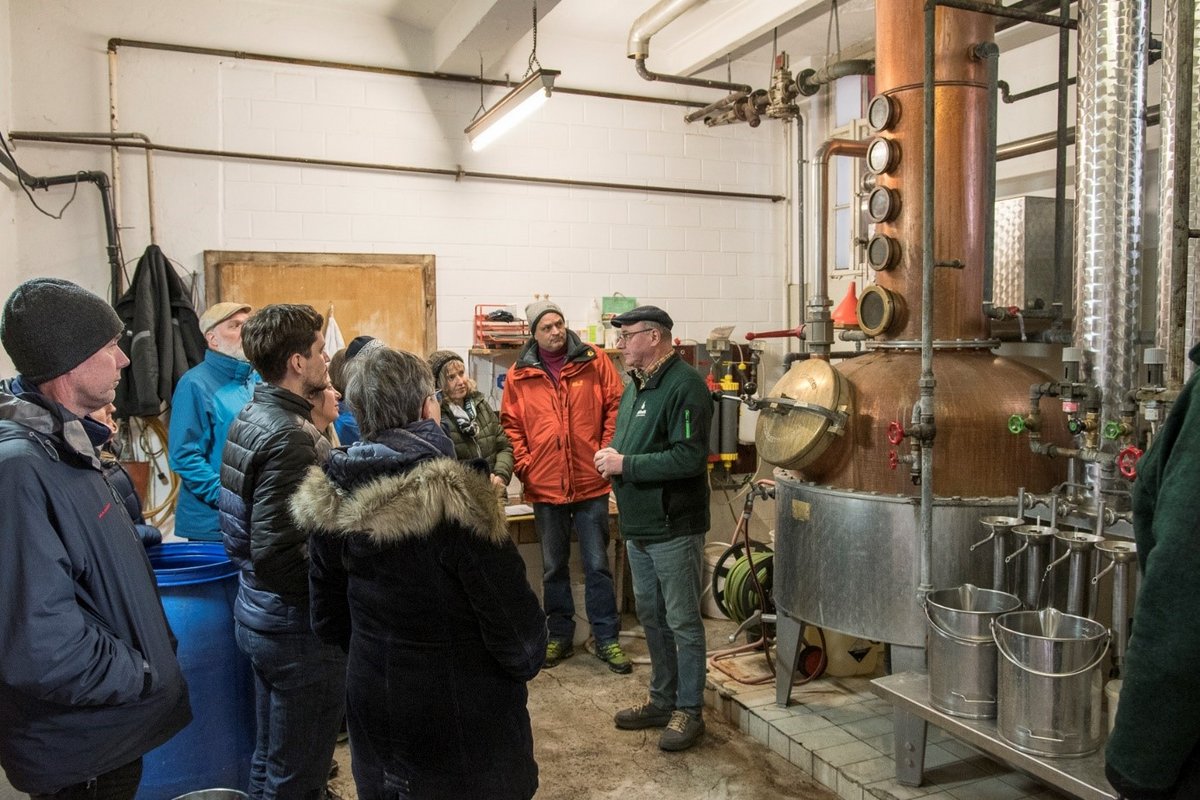
The family business is now run by the 4th generation, and we are given a detailed tour of the farm by the senior boss. The high esteem in which the Kobelt family holds the farm is obvious. The knowledge of the challenges in apple production is great, especially when it comes to the production of high quality apples. The variety of products is enormous, apples and other fruit are processed into a wide range of juices, cider, schnapps or even cider. Whether processing with heat or cold, storage in various wooden barrels - there seems to be no end to creativity here and the Kobelt family is constantly on the lookout for new possibilities.
With all this wealth of information, it became clear during the networking trip that a one-off visit by the Austrian Apple Hen farmers to the Swiss high-stem farms was not enough, but that a return visit by the Swiss was needed to visit the Apple Hen farms. This seems particularly important for the Demeter Apple Hen farmers who, unlike the Swiss standard apple farms, produce apples in espalier form. During the exchange in Switzerland, it became clear that even for intensive conventional high-stem farms, the trellis form of production is regarded as intensive. How this contrasts with the species-rich trellis systems of Demeter Apple Hen farmers will therefore be discussed when the Swiss visit Austria.
Getting back home
The Apple Hen farmers were impressed by the hospitality they received in Switzerland. Good food, good conversation, exchange and inspiration on topics that are important to them. The efforts of the Swiss Demeter high-stem farms to pass on the land to the next generation in better condition were particularly emphasized, as this is also a guiding principle of the Apple Hen farmers.
As soon as the Apple Hen farmers returned home, they considered integrating some of the ideas of the high-stem farms into their trellis systems.
More photos from the visit
Photos: Reinhard Gessl.
More information can be found here:
https://projects.au.dk/mixed/networks-national-teams/austria
https://projects.au.dk/mixed/news/nyhed/artikel/an-apple-hen-handbook-for-organic-farmers
https://projects.au.dk/mixed/networks-national-teams/switzerland

